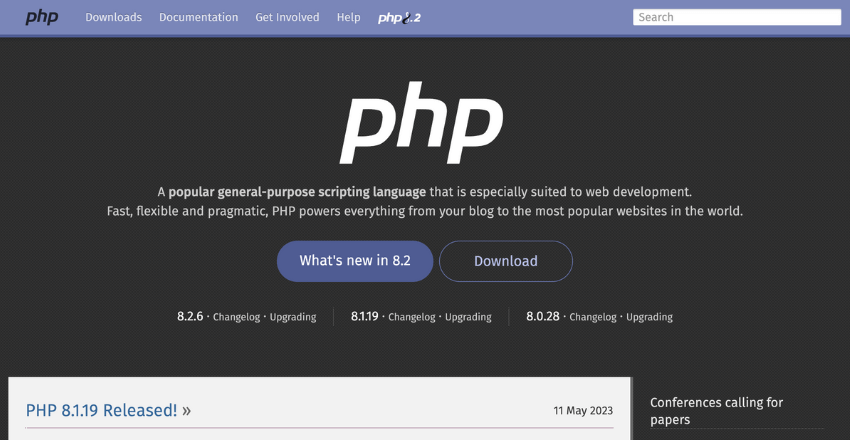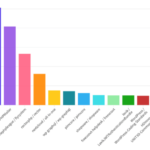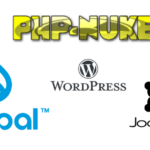Why programmers hate PHP is a question that uncovers the intricate landscape of modern web development.

Understanding the PHP Controversy
A Brief Overview of PHP
PHP, a server-side scripting language, has been a cornerstone of web development for many years. Despite its widespread use and significant contributions to the web, PHP has been the subject of much debate and controversy within the developer community.
This controversy isn’t without reason – it stems from various technical and structural aspects of PHP that some developers find problematic. However, it’s essential to remember that PHP, like any tool, has its strengths and weaknesses.
As a PHP developer, I’ve seen firsthand the power and potential of PHP, as well as its pitfalls and why people keep asking the question: why programmers hate PHP.
The Evolution of PHP
PHP has come a long way since its inception. Originally designed as a simple tool for web forms, PHP has evolved into a full-fledged programming language. Over the years, PHP has seen numerous updates and improvements, each aimed at enhancing its capabilities and addressing its shortcomings.
The evolution of PHP is a testament to its adaptability and the dedication of its developer community. Despite the criticisms, PHP has managed to stay relevant in the rapidly changing landscape of web development, continually adapting and evolving to meet the needs of developers and businesses alike.
As a PHP developer, I’ve witnessed this evolution and have had to adapt my practices and methodologies to keep up with the changes in the language.
The Backlash Against PHP
Despite its evolution, PHP has faced significant backlash from developers. One of the main criticisms is the presence of technical inconsistencies in the language. PHP’s syntax and function names lack a consistent naming convention, leading to confusion among developers.
This inconsistency can make PHP code difficult to read and understand, especially for developers new to the language.
Another criticism is that PHP makes producing bad code too easy. Its flexibility, while a strength, can also be a weakness. PHP allows developers to mix HTML, SQL, JavaScript, and PHP code in the same file, leading to messy and hard-to-maintain code.
This flexibility can lead to poor coding practices, making PHP applications prone to bugs and security vulnerabilities.
Security issues have also been a major concern with PHP. While no language is immune to security vulnerabilities, critics argue that PHP’s design makes it particularly prone to security issues.
These issues range from SQL injection attacks to cross-site scripting vulnerabilities, making PHP applications a potential target for hackers.
In my experience, these criticisms, while valid, can be mitigated with good coding practices and a deep understanding of the language. PHP, like any language, can be used well or poorly – the key is in the hands of the developer.
PHP’s Role in Web Development
Despite these criticisms, PHP’s role in web development cannot be understated. PHP powers many of the web’s most popular sites and content management systems (CMSs). WordPress, the world’s most popular CMS, is built on PHP, as are many other popular platforms like Drupal and Joomla.
PHP’s ease of use and wide support make it a viable choice for many web development projects. However, the backlash against PHP serves as a reminder that no tool is perfect, and the best tool for the job depends on the specific needs of the project.
The Future of PHP

As we look ahead, PHP’s future seems promising despite the criticisms. The language continues to evolve, with the PHP development team regularly releasing updates that address many of the issues that have plagued PHP in the past.
Modern PHP is not the same as the PHP of old. It has seen significant improvements in terms of performance, security, and consistency. The introduction of features such as namespaces, traits, and closures, along with improvements to the object-oriented programming model, have made PHP a more robust and flexible language.
Furthermore, the PHP community is actively working on improving the language. The PHP-FIG (Framework Interoperability Group), for example, has been working on creating standards for PHP to promote better coding practices and interoperability between different PHP frameworks.
However, it’s important to note that while PHP has improved, it’s not without its issues. The language still has its quirks and inconsistencies, and the ease with which one can write bad code in PHP is still a concern.
But with good coding practices and a deep understanding of the language, these issues can be mitigated.
FAQs about why programmers hate PHP

In this section, I’ll address some of the frequently asked questions about PHP and its criticisms.
Q: Is PHP a bad language?
A: No, PHP is not a bad language. Like any language, it has its strengths and weaknesses. The key is understanding these strengths and weaknesses and using the language appropriately.
Q: Is PHP dying?
A: Despite the criticisms and the rise of other languages, PHP is far from dying. It’s still widely used and continues to be a popular choice for web development.
Q: Should I learn PHP in 2023?
A: Yes, learning PHP can be beneficial, especially if you’re interested in web development. PHP is widely used and understanding it can open up many opportunities.
Q: What are the alternatives to PHP?
A: There are many alternatives to PHP, each with their own strengths and weaknesses. Some popular alternatives include JavaScript (Node.js), Python, Ruby, and Go.
“Why is PHP not used anymore?”
Q: Is PHP truly not used anymore?
A: Contrary to this belief, PHP is still widely used. It powers popular content management systems like WordPress and is the backbone of many web applications. However, the rise of other languages like JavaScript (Node.js), Python, and Ruby has led to a diversification in the tools used for web development.
<?php echo "PHP is still alive!"; ?>Q: Why do some developers prefer JavaScript over PHP?
A: JavaScript, particularly Node.js, has gained popularity due to its ability to handle asynchronous operations and its use in both the front-end and back-end development, enabling developers to use a single language across the entire application.
console.log("JavaScript can be used both on the front-end and back-end.");Q: Are there specific tasks for which PHP is no longer suitable?
A: PHP is still suitable for many tasks, especially server-side web development. However, for real-time applications like chat servers or when working with highly computational tasks, languages like JavaScript (Node.js) or Python might be more appropriate due to their non-blocking nature and better performance respectively.
<?php // PHP is still great for server-side web development $server = $_SERVER['SERVER_NAME']; echo "This server is running PHP: $server"; ?>Q: Has PHP’s performance improved in recent years?
A: Yes, modern PHP versions (7.x and above) have seen significant performance improvements over older versions. However, performance can also depend on how the PHP code is written.
<?php // PHP 7 introduced significant performance improvements echo "Running on PHP version: " . phpversion(); ?>Q: What are some modern alternatives to PHP?
A: There are several alternatives to PHP in modern web development. JavaScript (Node.js) is a popular choice due to its non-blocking I/O model. Python is favored for its readability and ease of learning, and Ruby is known for its elegance and the powerful Rails framework.
console.log("Node.js, Python, and Ruby are some alternatives to PHP.");“Is PHP losing its value?”
Q: Is PHP becoming less valuable in the job market?
A: While it’s true that the demand for other languages like JavaScript and Python has increased, PHP remains valuable in the job market, particularly in areas like content management systems and e-commerce platforms.
<?php echo "PHP skills are still in demand in many areas of web development."; ?>Q: Are PHP’s features becoming outdated?
A: PHP has evolved significantly over the years, and modern PHP has many features that keep it competitive with other languages, such as improved performance, better error handling, and a more consistent syntax.
<?php // PHP 7 introduced a more robust error handling mechanism try { // Some code... } catch (Exception $e) { echo 'Caught exception: ', $e->getMessage(), "\n"; } ?>Q: Is PHP less popular in modern web development?
A: While PHP may not be as trendy as some other languages, it’s still widely used and is the backbone of many websites. Its ease of use and strong support for web development tasks keep it relevant.
<?php // PHP is still widely used for web development tasks header("Content-Type: text/plain"); echo "Hello, web!"; ?>Q: Is PHP being replaced by other languages?
A: While other languages like JavaScript (Node.js) and Python have gained popularity, PHP is not being replaced wholesale. Each of these languages has its strengths and is suited to different types of tasks.
<?php // PHP continues to be a strong choice for server-side web development $server = $_SERVER['SERVER_NAME']; echo "PHP is serving this page from: $server"; ?>Q: Is PHP less suitable for modern web applications?
A: PHP is still very suitable for many types of web applications, especially those that require server-side rendering or interaction with SQL databases. However, for applications that require real-time updates or heavy client-side interaction, JavaScript (or frameworks like React or Vue) may be more suitable.
<?php // PHP is great for interacting with SQL databases $mysqli = new mysqli("localhost", "user", "password", "database"); $result = $mysqli->query("SELECT * FROM users"); ?>“Why PHP is not good for web development?”
Q: Does PHP lack modern programming features?
A: PHP has evolved significantly over the years and now includes many modern programming features. However, some developers feel that other languages offer more elegant or efficient ways to achieve the same results.
<?php // PHP now supports anonymous functions, a feature of many modern languages $greet = function($name) { echo "Hello, $name!"; }; $greet('World'); ?>Q: Is PHP not suitable for large-scale applications?
A: PHP can be used for large-scale applications, but it requires careful planning and architecture. Some developers prefer other languages for large-scale applications due to features like better support for multithreading or more robust error handling.
<?php // PHP can handle large-scale applications, but requires careful architecture class LargeScaleApp { // ... complex code here ... } ?>Q: Does PHP have performance issues?
A: While PHP’s performance has improved significantly in recent versions, some developers feel that other languages offer better performance, especially for tasks that require heavy computation or asynchronous processing.
<?php // PHP's performance has improved, but some tasks may be better suited to other languages $start = microtime(true); // ... some complex task ... $end = microtime(true); echo "Execution time: " . ($end - $start) . " seconds"; ?>Q: Is PHP’s error handling inadequate?
A: PHP’s error handling has improved in recent versions, but some developers prefer the error handling in other languages, which they feel is more consistent or easier to use.
<?php // PHP's error handling has improved, but some developers prefer other languages set_error_handler(function ($severity, $message, $file, $line) { throw new ErrorException($message, $severity, $severity, $file, $line); }); // ... some code that might cause an error ... ?>Q: Is PHP not suitable for real-time applications?
A: PHP is not typically the first choice for real-time applications, as it was not designed with this use case in mind. Languages like JavaScript (Node.js) are often preferred for real-time applications due to their non-blocking I/O model.
<?php // PHP is not typically used for real-time applications // This is a simple long-polling example, but other languages may be more suitable while (true) { // ... check for updates ... sleep(1); }?>
“What is replacing PHP?”
Q: Is JavaScript replacing PHP?
A: JavaScript, particularly Node.js, has gained popularity for server-side development. Its non-blocking I/O model and the ability to use the same language on the front-end and back-end make it an attractive alternative to PHP for some developers.
// JavaScript (Node.js) is a popular alternative to PHP for server-side development const http = require('http'); const server = http.createServer((req, res) => { res.statusCode = 200; res.setHeader('Content-Type', 'text/plain'); res.end('Hello World\n'); }); server.listen(3000, '127.0.0.1', () => { console.log('Server running at http://127.0.0.1:3000/'); });Q: Is Python replacing PHP?
A: Python has become a popular choice for web development, thanks to its readability and the powerful Django and Flask frameworks. However, it’s not so much replacing PHP as offering another option for developers.
# Python is a popular choice for web development from flask import Flask app = Flask(__name__) @app.route('/') def hello_world(): return 'Hello, World!'Q: Is Ruby replacing PHP?
A: Ruby, and particularly the Ruby on Rails framework, is another alternative to PHP. Ruby on Rails offers a full-stack framework that some developers find more efficient and enjoyable to use than PHP.
# Ruby on Rails is a full-stack framework that some developers prefer over PHP Rails.application.routes.draw do get 'welcome/index' root 'welcome#index' endQ: Are static site generators replacing PHP?
A: Static site generators like Jekyll or Hugo are becoming popular for certain types of websites, particularly blogs and documentation sites. These tools generate static HTML pages, which can be more performant and secure than a traditional PHP site.
# Static site generators like Jekyll are popular for blogs and documentation sites jekyll new my-awesome-site cd my-awesome-site bundle exec Jekyll serveQ: Are serverless architectures replacing PHP?
A: Serverless architectures, where code is run in response to events on demand, are a growing trend. Languages like JavaScript (Node.js) and Python are commonly used in serverless architectures, but PHP can also be used in some cases.
# Serverless architectures are a growing trend service: my-service provider: name: aws runtime: nodejs12.x functions: hello: handler: handler. Hello
Wrapping up about why programmers hate PHP

Why programmers hate PHP: PHP, a server-side scripting language, faces criticism due to technical inconsistencies, ease of producing bad code, and security issues.
Despite this, PHP is still widely used in web development and continues to evolve. Alternatives like JavaScript, Python, and Ruby offer different strengths.
While PHP has its criticisms, it’s still a powerful tool in the realm of web development. The key is understanding the language’s strengths and weaknesses and using it appropriately.
As a PHP developer, I’ve seen firsthand the power and potential of PHP, and I believe that with good coding practices and a deep understanding of the language, PHP can be a valuable tool for any developer. And people can stop asking why programmers hate PHP.
Ashley is an esteemed technical author specializing in scientific computer science. With a distinguished background as a developer and team manager at Deloit and Cognizant Group, they have showcased exceptional leadership skills and technical expertise in delivering successful projects.
As a technical author, Ashley remains committed to staying at the forefront of emerging technologies and driving innovation in scientific computer science. Their expertise in PHP web development, coupled with their experience as a developer and team manager, positions them as a valuable resource for professionals seeking guidance and best practices. With each publication, Ashley strives to empower readers, inspire creativity, and propel the field of scientific computer science forward.







